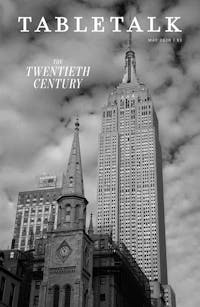
Request your free, three-month trial to Tabletalk magazine. You’ll receive the print issue monthly and gain immediate digital access to decades of archives. This trial is risk-free. No credit card required.
Try Tabletalk NowAlready receive Tabletalk magazine every month?
Verify your email address to gain unlimited access.
Nearly twenty years ago, when I first began serving on the editorial staff of Tabletalk, we decided to begin what became a two-decades-long overview series of church history. Since that time, the world has drastically changed, but the church has changed even more drastically. The twentieth century ushered in sweeping changes across the global landscape of Christianity, and those changes have continued into the new millennium. We have witnessed significant growth of the church in not only the Global South but also in places such as Iran, Afghanistan, and North Korea, where the church is growing faster than in most other countries.
Like much of Europe, however, the United States of America has experienced negligible church growth as well as rapidly falling regular, weekly Lord’s Day worship attendance and participation in the means of grace and fellowship of the church. During the last quarter of the twentieth century, we began to see Lord’s Day worship displaced by kids’ activities, athletic events, and anything else deemed a greater priority than gathering together to worship God. In the twentieth century, we saw the rise of megachurches, multisite churches, attractional churches, and churches with worship services designed to make people feel as if they’re doing anything except worshiping God at church. Television evangelists and faith healers rose to a new level of prominence, and many of them have become notoriously wealthy while neither evangelizing with the gospel of Jesus Christ nor having the ability in themselves to heal. We have also witnessed a continued diminishing level of biblical and theological knowledge, and, in turn, we have observed the rampant growth and spread of biblical and theological error and outright heresy. The pure, unvarnished preaching of the simple gospel message has been eclipsed in many churches by a socially acceptable “gospel” message that claims to offer peace and unity without truth and purity. It is a compromised message devoid of sin, repentance, wrath, or hell that is tailored to seem attractional to everyone and offensive to no one.
Nevertheless, God is sovereign, God’s gospel remains the power of salvation to everyone who believes, and God’s mission will not be thwarted. The problems of the twentieth and twenty-first centuries, as in every century, cannot hinder the final triumph of Christ and the ultimate fulfillment of the Great Commission. As our Lord continues to build His kingdom from among all the tribes, tongues, and nations of the world, He continues to build His one true church across the globe, and the gates of hell will not prevail against it.
